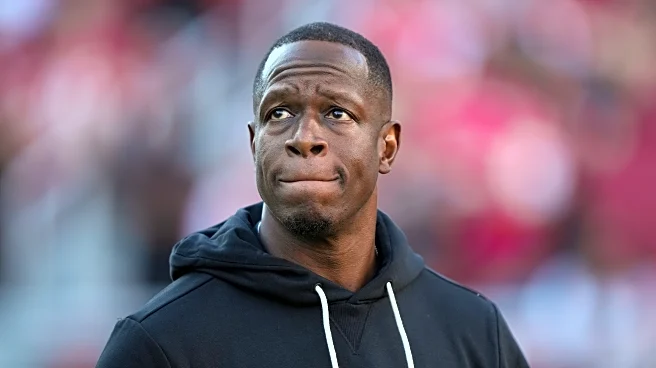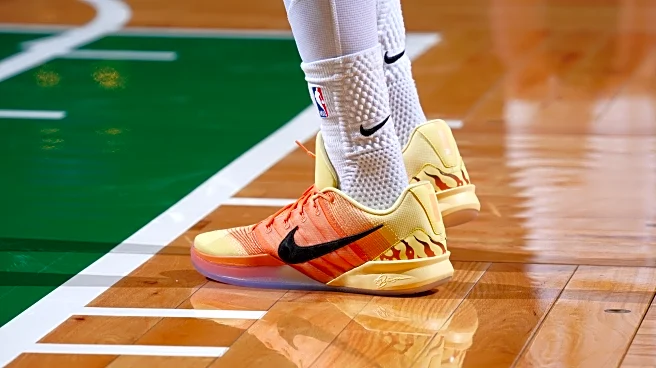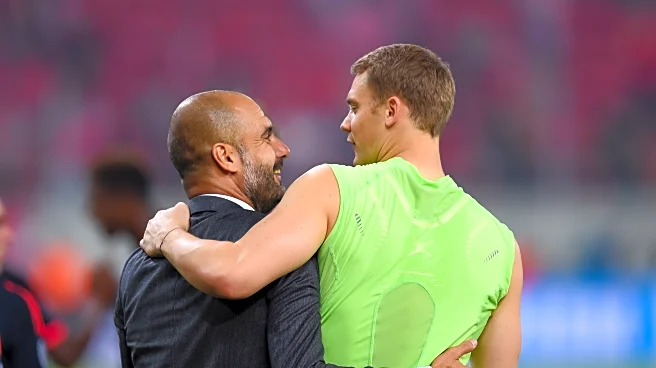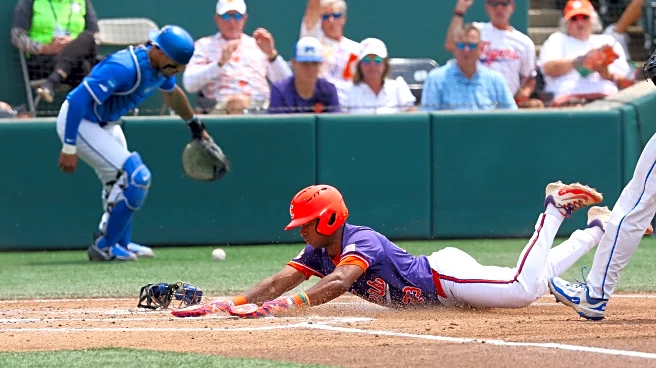
Six games are usually a solid barometer for gauging trends for an NFL team. There is one glaring one when watching the Falcons this season. When they start strong and have control of the game, they earn
their victory definitively. That has come against three previous playoff teams last season in beating Minnesota, Washington, and Buffalo.
When they come out flat and struggle to find a rhythm offensively, they lose in discouraging fashion. That has materialized in ugly games against Carolina and San Francisco. The defeat to Tampa Bay was the lone competitive matchup where they were the better team, but failed to make enough plays in pivotal moments.
Starting fast is a great recipe for success. It inspires more confidence around the team. The optimism grows across the team to be more aggressive and proactive. As much as coaching staffs preach that message, it’s not reasonable to do that every week. The best teams will endure slow starts. They can suffer a few three-and-outs or fail to score in the red zone offensively. A few unfortunate penalties or coverage breakdowns can transpire defensively. Using those mistakes as teachable moments to overcome the adversity in falling behind is what the top teams do.
The Falcons haven’t responded well when things aren’t clicking from the first drive. As the down and distance gets longer and the ground game can’t be relied upon, Michael Penix Jr. starts committing traditional young quarterback mistakes. Opponents will use the lead they gain and run the ball efficiently in between the tackles against an undersized front. That allows them to dominate possession by controlling the pace of the game. The formula is out on how the Falcons win and lose games. There are three major issues that must be addressed.
Offensive Rigidness
When Bijan Robinson doesn’t produce 125+ total yards, the Falcons have lost every game this season. It’s understandable why they have become increasingly more reliant on him. A sensational, multi-dimensional playmaker must be utilized consistently. How they have incorporated him in the passing game the last two weeks does raise concerns, even so.
According to Pro Football Focus, he has lined up in the slot or out wide 35 times over the past two games. While this is designed to create mismatches, it hasn’t opened up many big-play opportunities or high-percentage throws for Penix Jr.
The passing game isn’t stretching the field and attacking in between the numbers enough. That has put more pressure on Penix Jr. to throw the ball outside the numbers frequently when pushing the ball downfield. As good as Drake London and Kyle Pitts can be at making contested catches, it’s not what efficient offenses want to rely on. They must find alternatives to push the ball downfield, yet the Falcons don’t have it. It’s similar to how if they can’t impose their will running wide outside zone on the ground, they struggle to find answers. The offense becomes so constrained when Robinson isn’t breaking loose into the open field.
As games get tighter and they can’t run the ball as well to put them in healthier down-and-distances, opposing defenses will play more man coverage. That was apparent against a decimated San Francisco defense that plays physical, tight coverage. Per TruMedia, Robert Saleh used man coverage on 35% of plays in Sunday night’s matchup. Receivers struggled to create separation. Penix Jr. was erratic in going through progressions and making accurate throws. San Francisco made them earn every single yard, which is a troubling sign for an offense that is supposed to be filled with firepower.
The overreliance on requiring Robinson to be prolific, along with an inability to cope with added physicality and pressure, has discombobulated the offense in favorable matchups against defenses that are either injury-plagued in San Francisco or not very good in Carolina.
Coaching Details
When an offense with high expectations underperforms, especially in matchups where they should be incredibly productive, coaching is bound to be questioned. Zac Robinson has received his share of criticism. From inept play action usage to heavy reliance on pistol formation to glaring tendencies with motions, there is plenty to discuss when assessing the Falcons’ offense. Some would put a lackadaisical screen game plan and uninspiring route concepts before what was listed above.
My colleagues Kevin Knight and Tre’Shon Diaz broke down how Saleh’s defense used extra defenders in the box to shut down Atlanta’s wide outside zone on their Tuesday Takes with Tre’Shon show. The long-developing runs proved to be ineffective, where adjustments were never made. The failure to call run plays under center was detrimental against a terrific defensive coordinator who had his undermanned unit well-prepared, despite playing without Fred Warner for the first time in years. Cornerback Chase Lucas only played 30 snaps in the NFL before Sunday’s game. He played 35 on Sunday night, including a massive pass breakup on 4th down, where he anticipated London running into the flat off motion. The way the inexperienced cornerback easily identified the play concept is another alarming sign of how formulaic the offense has been.
The issues go beyond the offense. There was an appalling sequence on San Francisco’s game-securing drive where the Falcons committed a 12-man defensive penalty, followed by only having ten men on the field on a critical 3rd and 13 conversion that had Christian McCaffrey open down the seam. That simply can’t happen. What also can’t happen is allowing time off the clock in two-minute situations before halftime against Washington and Buffalo.
These are prime examples of a lack of attention to detail, where a timeout provides the offense a greater opportunity to score points instead of wasting heroic efforts like we saw from London against Buffalo. Morris is far too experienced for his team not to be organized in crucial moments. He has worked with too many great coaches to put his team at a disadvantage as often as he does due to situational mismanagement.
Overcoming Defensive Limitations
It’s difficult to envision how the defense can make strides in stopping the run. The way they are constructed isn’t ideal for redirecting offensive linemen at the point of attack and clogging up run lanes. While Zach Harrison continues to improve and David Onyemata looks rejuvenated, there is only so much an undersized front can do. It also doesn’t help when the opposing coach is Kyle Shanahan, and he decides to shy away from his standard outside zone run concepts by running more power. For an offensive line not known for overwhelming opposing fronts to overpower Atlanta’s defense showed how limited they are there in that area.
If a trade is made before the deadline, it will likely be for a wide receiver rather than a defensive tackle, however. Divine Deablo’s forearm injury leaves a defense currently ranked 28th in rush success rate more vulnerable, with big challenges against New England and Indianapolis looming. Jeff Ulbrich can consider reducing his defensive line rotation or playing with heavier boxes. Sticking with a more concise plan relying on his most dependable players is a viable option.
Something must change after the defensed allow nine of 15 third downs to be converted against San Francisco, on a day where Mac Jones didn’t have to make any impressive throws. The staff must do what they can to work with their young core to get off blocks and be more stout against the run, forcing more unfavorable third downs.









